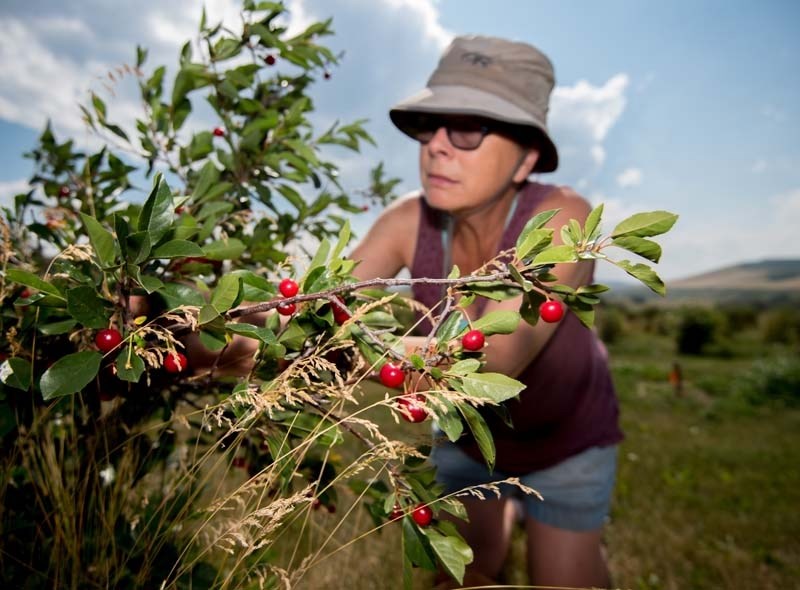Farmer Eric Longeway has seen his share of good harvests over the last 91 years – but it doesn’t take more than a glance at his current crops to know this season won’t be one for the books.
“We’re putting up the hay … but it isn’t a good crop by any means,” said the Springbank-area senior. “It’s actually even too hot and dry to do a good job – it dries so fast it just breaks into pieces. If we could get dew in the morning or a little moisture, but the ground is so dry you don’t even get the dew.
“The quality isn’t anywhere near where it should be.”
Environment Canada says this summer has been the hottest in the Calgary area since temperatures started being recorded in 1881 – with daily temperatures over the last two months averaging two to three degrees hotter than average – combined with just 41.5 millimetres of rain in June and only a bit more, 55.5 mm, in July.
The blistering conditions are creating challenges for farmers like Longeway, whose family has operated Rockyview Farm since 1912 – and for Rob Butler and Tannis Hushagen, who are getting ready to harvest their first full crop of prairie cherries and Saskatoon berries on their two-year-old orchard southwest of Cochrane.
“We’ve been hand-watering from our water that we collect … from our well. It’s brutal,” said Butler, co-owner of the family-run berry business, Panik Nuna Farm. “We don’t have an irrigation system because we just took the chance we would be OK for a few years. That’s the price we pay.”
Panik Nuna has approximately 1,000 trees, and while some of the more mature foliage doesn’t need much moisture, each younger tree and bush needs approximately as much as three gallons a week to flourish – so are being hand-watered at least twice every seven days.
“We do a row at a time … it’s terribly time consuming,” Butler said. “You can be out there for a day.”
On the Longeway farm, where hay and cattle operations stretch across about 350 acres of land, the patriarch said the best formula for the healthiest crop combines a nice, wet June, with a warm and moist July. But patterns are less predictable than they used to be, he said.
“The climate is changing so much, even worldwide. You used to be able to count on the weather – rain in June, and nice in July – but we just can’t seem to get that lately.”
Longeway has memories of “some bad years in the 30s” when “there were a number of years that were dry.”
“It was poor hay crops. It was dry spells,” said the farmer, adding in 1951 “we had two feet of snow.”
“That was actually good,” he said with a laugh. “We had the moisture.”
Hushagen said weather is often a double-edged sword for growers like them: after wishing for more rain over the last two months, she and Butler are now at a delicate stage – about a week before picking – where they actually need the dryness to continue.
“If the fruit’s wet, then it will start to rot,” she explained. “For consumers, it’s better if it’s clean and dry and as mother nature intended it.”
“I check the weather 10 times a day,” added Butler.
Longeway describes the weather as a farmer’s “boss” and said that, although “we call him names sometimes, alright” when rough years like this one occur, he and his fellow homesteaders prefer to remain positive about the future.
“What we farmers always say: next year’s going to be better. We think we’re kind of hard done by sometimes, but you say, ‘Well, we’ll keep on and see what happens,” he said.
“We’ve had some wonderful years over the years and we’ve had bad ones … but here, we’re never completely beat.”




